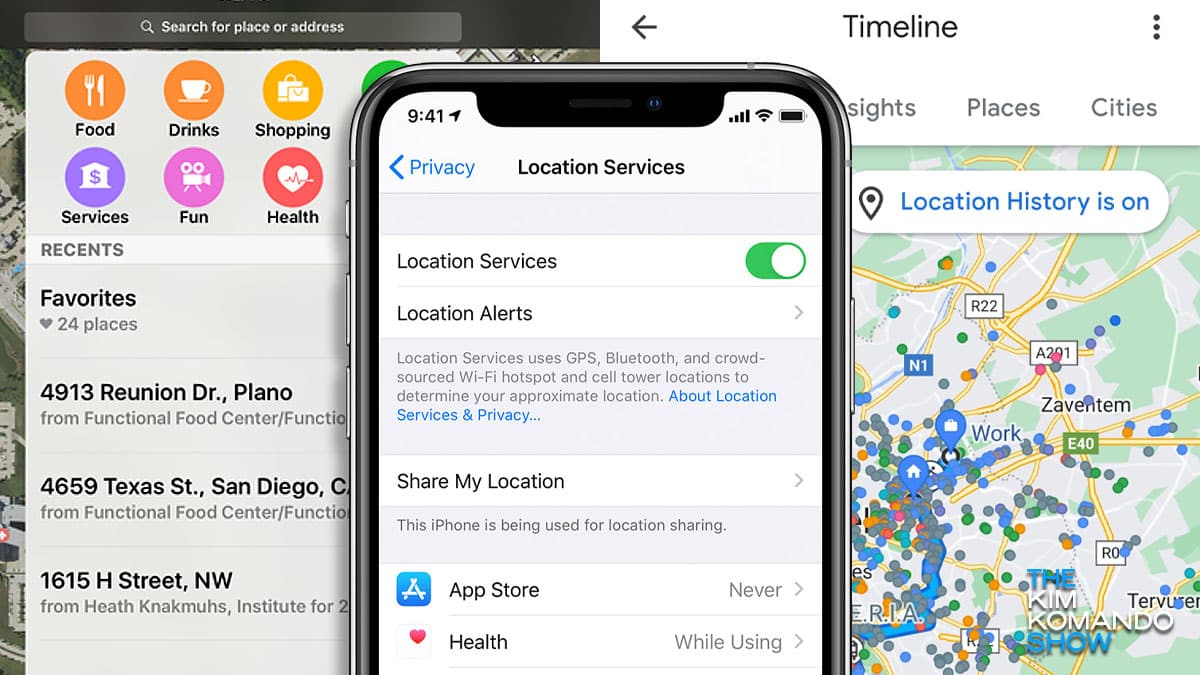Delete location sharing apps – How to share in the ones you use

Location sharing helps you worry less. Whether your friend’s late for dinner, your kid’s almost home or your partner’s on the way from the airport, it sure beats sending a bunch of texts back and forth.
The bad news is more and more location-sharing apps have been caught selling your data to third parties. You don’t need a separate app for location sharing; it’s baked right into the apps you already use.
🍎 Use an iPhone? Start here
Before we jump in, make sure your iPhone is updated. If it’s not, you might not see these settings, or they could be tucked away in other places. To update, go to Settings > General > Software Update. (Cue hold music.)
All right, now we’ll tell your phone it’s OK to share your location with certain folks. (We’ll get to the “who” and “how” in a second.) Hit Settings > Privacy & Security > Location Services and toggle on Share My Location.
The easiest way to share your location is in a text. To request someone’s location or share your own, open Messages, then pick a text thread and tap the + icon in the bottom left. Scroll to Location and select one of these options:
- Share location: Tap Share in blue on the bottom right to pick the length of time you want the other person to see your location: For 1 hour, Until End of Day or Indefinitely. You’ll see a map. Hit the blue arrow on the right-hand side to send it like a regular text. If your recipient taps the icon showing minutes or hours, they’ll receive directions to your location using Apple Maps.
- Request location: Hit Request in gray on the bottom left. Press the blue arrow to send a text. From there, your recipient can choose to share their location with you.
What if you change your mind? Open the text chat, tap their name at the top, and choose Stop Sharing My Location. You’ll both get a notification.
📍 Checking in
One of my favorite iPhone safety features is Check In. It’s an easy way to automatically let a pal or family member know you made it to your destination safely, and it’s much better than trying to remember to text! This feature only works for people you’ve chatted with and who are in your contacts.
- Open a text, then tap the + icon in the bottom left and scroll to Check In.
- Choose how much data you want to share with your contact. Limited gives info about your battery and network signal; Full also shares your route and where your phone was last unlocked.
Wanna tweak this access later? Go to Settings > Messages > Data. After the text is generated, press Edit to change any settings. Then, pick When I arrive or After a timer.